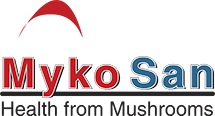How Medicinal Mushrooms Fight Cancer: An Introduction to the Mechanisms
The Overview of Mechanisms
The activity of medicinally active compounds from mushrooms is very complex and diverse. The most critical medicinal mushroom mechanisms are stimulation of the host-mediated immune response (immunomodulation) and cytotoxic/cytostatic effects.
Both inhibit the 8 main stages of carcinogenesis:
- chronic inflammation (may induce mutations and adaptations leading to cancer)
- cancer cell proliferation (uncontrolled cell division and growth)
- adhesion (ability to adhere to each other and healthy cells)
- apoptosis (cancer cells have lost the capability for programmed cell death)
- angiogenesis (building new blood vessels that feed the tumor)
- gene expression (using the information from a gene to synthesize a gene product, such as a protein or functional RNA)
- invasiveness (cancer cells invade and spread through healthy tissue)
- metastasis (spread to distant organs).
Mediating the host’s immune system, commonly called “boosting the immune system”, refers to the various ways of stimulating and modulating the general and cancer-specific host-mediated immune response, both innate and acquired. Fungal beta-glucans, notably, influence these mechanisms.
Cytotoxicity, or toxicity to cancer cells, is a direct effect leading to cancer cell death by necrosis or apoptosis (programmed cell death). This includes carcinostatic modifications (slowdown of proliferation, or uncontrolled cancer cell division), faster maturation into differentiated benign cells, and modifying the cancer cells so the immune system can easily recognize them.
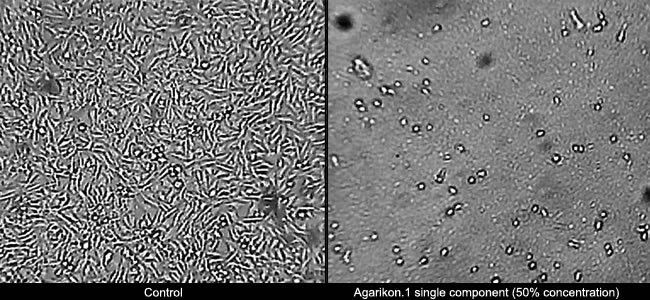
Left is the control; on the right a 50% concentration of a single Agarikon.1 component demonstrating a direct cytotoxic effect (killing cancer cells).
Source: Rudjer Boskovic Institute
Modifications of Host Mediated Immune Response
Some medicinal mushroom compounds (notably some beta-glucans) improve the host-mediated cancer immune response. When users consume beta-glucans, they stimulate the Peyer’s patches in the intestinal walls. Peyer’s patches help generate the immune response with macrophages, dendritic cells, and B- and T-lymphocytes. The body adapts by boosting the immune system.
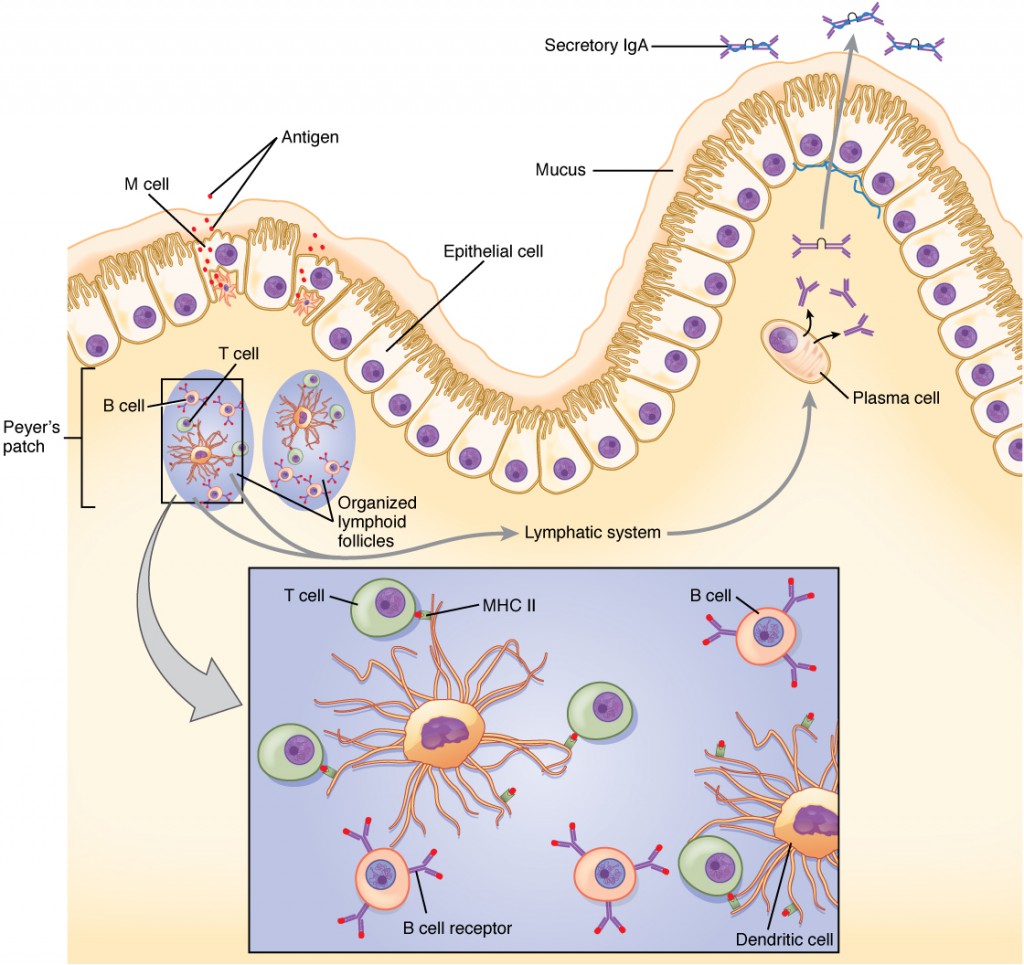
Lentinan, a compound from shiitake and an official anticancer drug in Japan, is a good example of how most beta-glucans work. While not toxic to cancer cells, lentinan modulates the immune system so it is more aggressive and efficient against them. Lentinan improves the production of:
- immune-strengthening substances:
- antibodies
- cytokines (interferons and interleukins, esp. IL-1)
and strengthens the activity of:
- natural killer cells (NK cells)
- cytotoxic macrophages
- cytotoxic and helper T-lymphocytes
- classical and alternative complement pathways
and inhibits the creation of substances that weaken immunity (immunosuppressive).
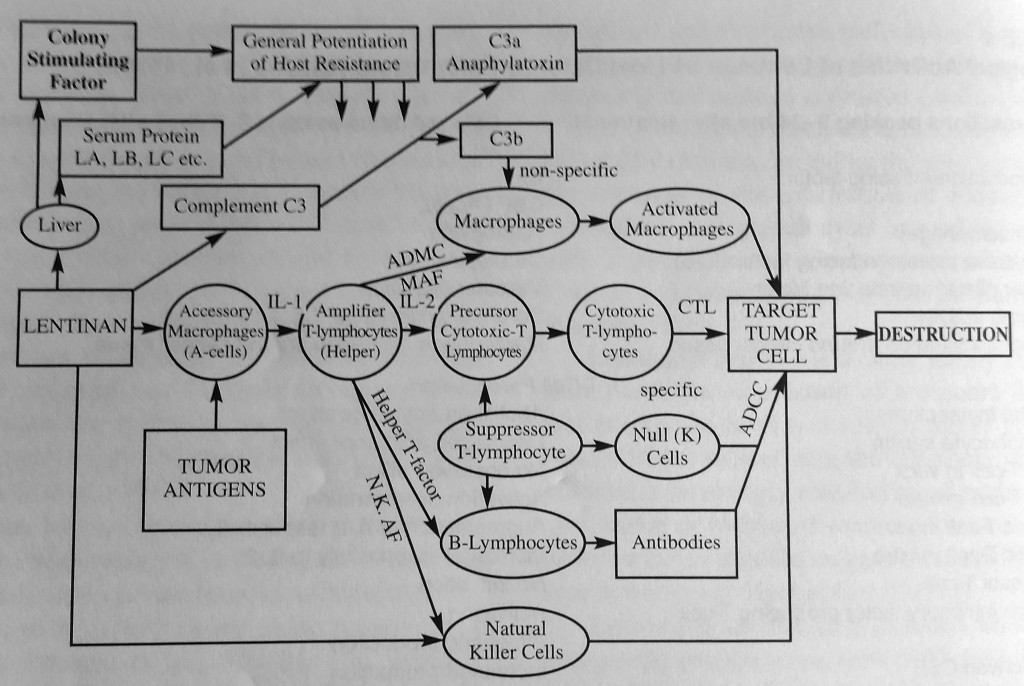
As you can see, the activity of lentinan is well-known: it is also very complex. Lentinan blocks various pathways important for cancer progression.

Lentinan has been proven to boost the immune system and fight cancer and viral infections.
Other beta-glucans (e.g. SPG, PSK …) from medicinal mushrooms work similarly, but not the same. Some mainly
- stimulate the innate and acquired immunity responses
- enhance the production of immunocompetent cells
- increase their functional abilities
- help them recognize and kill cancerous cells
- protect the immune system from weakening, etc.
Cytotoxic and Carcinostatic Activity
There are many medicinal mushroom compounds (certain polysaccharides, protein-bound polysaccharides, lignins, triterpenes, purines, polyphenols, etc.) that do not only modify the immune system. Some of them are toxic to cancer cells (cytotoxicity), and others subtly change their functioning.
Many medicinal mushroom compounds exhibit direct cytotoxic activity. They can cause cancer cell death by inducing necrosis and promoting apoptosis. Necrosis is a cell injury that leads to cell death: the compounds damage cancer cell membranes and mitochondria (the “power plant” of cells). Apoptosis is a programmed cell death: the compounds trigger those biochemical events that lead to cell death (one of the properties of cancer cells is that they lose this ability, allowing for proliferation, or uncontrolled cell division).
But there are more insidious processes that detrimentally modify cancer cell functions: they inhibit cancer cell development or speed up their maturation (turning them into benign, differentiated cells), make them more easily detectable and vulnerable to the immune system, etc.
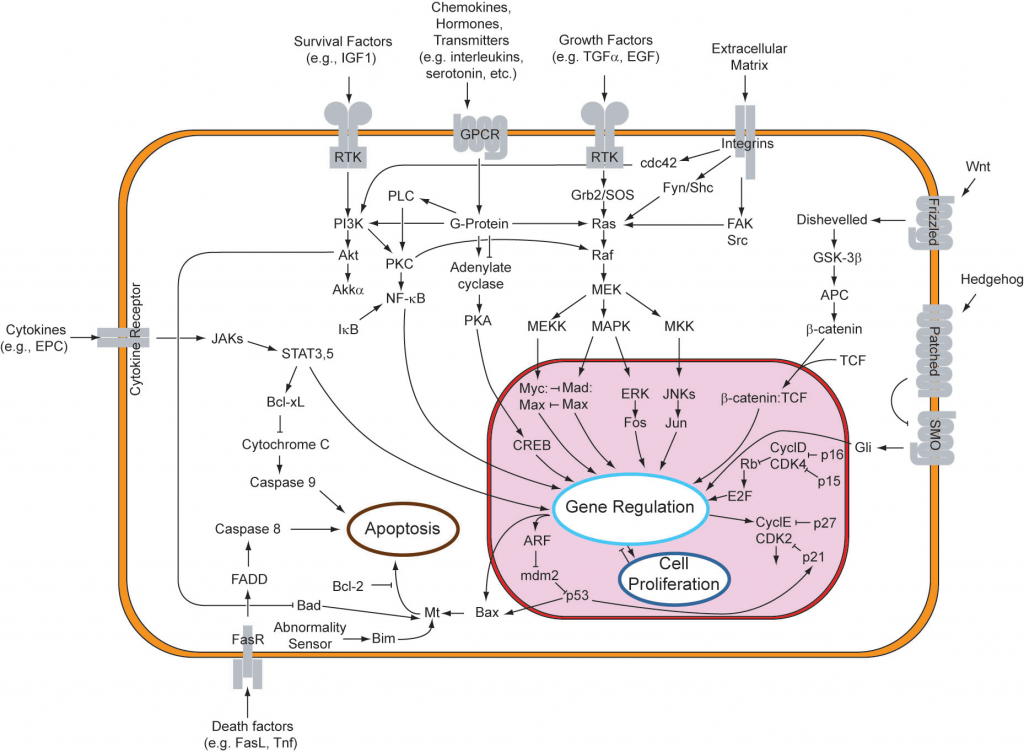
And while we know a lot about the mechanisms, there are still many unresolved issues.
The research of mechanisms continues, but we already know without any doubt that medicinal mushroom compounds can help cancer patients:
- improve overall outcome (including the chance of survival and longer life span)
- help switch progressive tumor disease to stable disease
- reduce cancer size in primary tumors and metastasis
- endure chemotherapy and radiotherapy, with fewer side effects
- tolerate surgery better and accelerate post-operative recovery by improving wound healing, etc.
- prevent immune system weakening due to official cancer therapy
- greatly increase the quality of life (more strength and endurance, better sleep and appetite; less pain, nausea, and fatigue).
The research of mechanisms explains these effects, which, paradoxically, were first observed in human clinical trials – and also reported in cohort studies that Myko San has completed.
